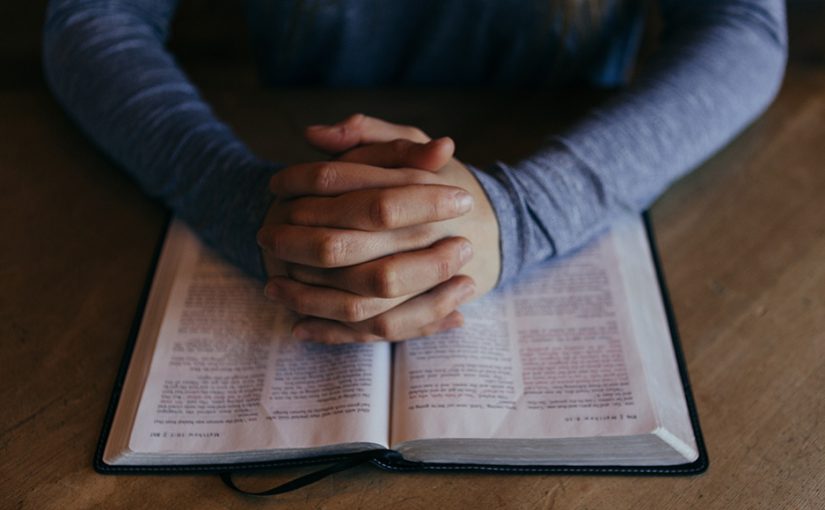A homily for the Solemnity of All Saints, Nov. 1, 2020
Rv 7:2-4, 9-14, 1 Jn 3:1-3, Mt 5:1-12A
The notion of “holy” gets some people all knotted up, because to some folks, “holy” is the first two syllables of a phrase that ends with “er than thou,” and like almost everything else in American culture, achieving a level of holiness can become a competition, cynical or otherwise.
It’s not.
For some other people, holiness is best captured by those Precious Moments figurines: beautiful, fragile, a little kitschy, but all in all something to be kept on the shelf and dusted off every now and then. Maybe something to be hauled out when Aunt Tillie comes over to visit.
It’s not that, either.
Holiness — saintliness — is achieved by not trying to achieve it. Holiness is something you attain by ignoring the quest for any sort of halo and instead getting good and smelly-dirty by hanging out with the rest of God’s flock. Lanolin-enriched from all the other sheep’s wool.
Holiness happens when you are simply doing the right things for the right reasons all the time. That’s why you are holy and not do holy.
In the Gospel last week, Jesus clarified the two great commandments — Love God and love your neighbor as yourself. He clearly was calling all of us to action, though that particular passage left us on our own to draft our action plan.
This week’s Gospel — Matthew’s cataloging of the Beatitudes — gives us not only an action plan but a list of the rewards for those who strive to attain the goals God sets.
 And the beauty of the Beatitudes is that, in its wide range, this tract recognizes that we all have different talents and skills, that we’re all on this journey together, and that these roles for each of us have “real-world” applications.
And the beauty of the Beatitudes is that, in its wide range, this tract recognizes that we all have different talents and skills, that we’re all on this journey together, and that these roles for each of us have “real-world” applications.
Let’s break them down.
Blessed are the poor in spirit,
for theirs is the Kingdom of heaven.
It’s bumper-sticker theology time. One interpretation of “poor in spirit” is captured in the “Live simply so others can simply live” sticker. Many news reports about the impact of the pandemic have pointed out that, for a variety of reasons, we have cut way back on spending. Maybe not a total abandonment of the golden calf known as consumerism, but definitely a drastic scaling back. Harsh realities imposed this on us, but we have the chance to choose it as a better way of life. We easily could incorporate this into the New Normal (if it ever comes).
Blessed are they who mourn,
for they will be comforted.
Families who have lost loved ones during the pandemic without a doubt fit into this category, but think of other ways people are mourning now. Disconnection from family and friends because of lockdowns. Loss of a home or a job, perhaps because of the pandemic or perhaps because of climate change-fed storms. This Beatitude promises hope. It promises a new and brighter tomorrow, albeit on God’s time. Then again, to hasten that tomorrow, we can deliver comfort in ways large and larger — because even the tiniest gift of being present to someone in pain always turns out to be a far greater gift than any of us ever realized.
Blessed are the meek,
for they will inherit the land.
Remember, this one says “meek,” not “wimpy.” This sort of meekness is common courtesy, niceness, respect and politeness. Let the person with only two items get ahead of you in the checkout line. It’s a big reward for a simple charity.
Blessed are they who hunger and thirst for righteousness,
for they will be satisfied.
Black Lives Matter.
Blessed are the merciful,
for they will be shown mercy.
You can be glib and reframe this as “What goes around comes around,” and you’d be right, sort of, at least on the surface. The deeper significance of this lies in the realm of justice and societal systems that perpetuate injustice. Those systems can — those systems must — be overhauled so that mercy and fairness flow to all.
Blessed are the clean of heart,
for they will see God.
Despite decades of hearing denunciations of how sex sells, our culture remains full of imagery that reduces people to collections of body parts. This is not about being a prude, about seeing the beauty of the human form as somehow dirty; not in the least. This is about rampant depersonalization. I define being clean of heart as always seeing people as whole, worthy human beings, persons created in God’s image, Christ in others’ lives.
Blessed are the peacemakers,
for they will be called children of God.
No justice, no peace. Know justice, know peace. Stopping conflicts is fine. Healing divisions and cherishing diversity are challenges from God.
Blessed are they who are persecuted for the sake of righteousness,
for theirs is the Kingdom of heaven.
Have you ever stood up for a friend — or even a stranger — who was being bullied? You remember that when you did, you became a target too. You did the right thing.
Ah, yes, doing the right thing. Asking WWJD and consciously choosing to do it too.
It’s doesn’t take much effort and it doesn’t take much time for always doing the right thing to become part of us, to be the only way we do anything, with love for God and love for neighbor.
As any saint would do.
